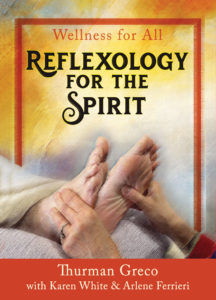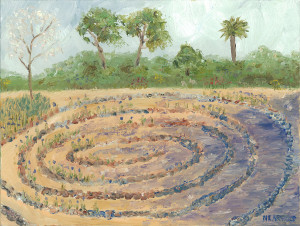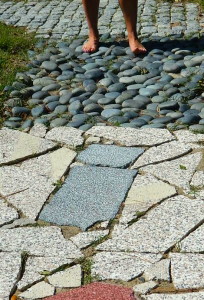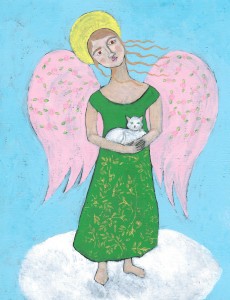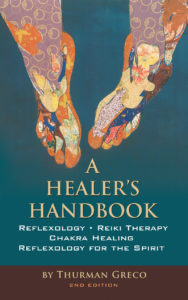Is it a Cold, the Flu, or Coronavirus?
For months we’ve all been reading and hearing about a resurgence of the coronavirus combined with the flu. So…what does this mean?
Every year I hear the same question at the beginning of flu season: HOW DO YOU KNOW WHETHER IT’S A COLD OR THE FLU? This season, the question is a little different: HOW DO YOU KNOW WHETHER IT’S A COLD OR THE FLU OR CORONAVIRUS?
There are some real differences.
Fever is rare with a cold. Fever is common with the flu. It’s usually high and lasts three or four days.
Headaches are rare with a cold but common with the flu.
Cold sufferers may have slight aches and pains. Flu sufferers have definite aches and pains which may be severe.
Extreme fatigue and/or weakness is just not a factor with a cold. Exhaustion is common with the flu – especially at the onset of the illness.
Sore throat, stuffy nose, and sneezing are common with a cold. A person suffering with a cold may have mild symptoms to include a hacking cough. With the flu, these symptoms can become severe.
With colds, treatment includes antihistamines, decongestants. With the flu, the patient needs to consult with a physician about any needed medication.
Coronavirus complicates things.
Many people experience fever as the first symptom of Coronavirus.
The second symptom is often a combination of a cough and muscle pain.
Nausea and vomiting make up the third tier.
These symptoms are usually followed by diarrhea.
And, that’s not all. Some people experience a loss of taste or smell.
And, some people experience deeply reddish-blue toes (chillblains).
Others have headache and dizziness.
The bottom line here is that coronavirus has many symptoms while colds and flu
are much less complicated.
If you suspect coronavirus, go get tested. Waiting around while you try to decide you are sick and contagious or not is not good for you and it’s not good for those around you.
There are several tools at your disposal which can help you early on.
A thermometer is essential. Take your temperature daily.
When I’m out in the community, my temperature is the key to getting into the office where I have an appointment.
The no-touch forehead fever thermometer gun has become ubiquitous on receptionists’ desks wherever I go.
There’s no reason why you shouldn’t take your temperature every morning. Your temperature can accompany your blood pressure reading. You can keep your thermometer gun beside your blood pressure cuff.
Then, you only need one other item: a pulse oximeter. A pulse oximeter estimates the amount of oxygen in your blood.
If you have coronavirus, your pulse oximeter will register a lower oxygen level in your body. This is because with coronavirus, your lungs are inflamed. (Actually, with coronavirus, inflammation is all over your body).
So, if you are concerned about your health because you may become exposed to coronavirus, you can help yourself with your temperature, your blood pressure, and your oxygen level.
If you feel ill, you will help your healthcare professional with these three scores.
For those who aren’t really familiar with an oximeter, it is the little plastic clip placed on your finger when you get your blood pressure measured.
These devices are not that expensive, are easy to use, and you can find an explanatory chart which will explain the meaning of the score.
Whatever you decide, prevention is important. Wash your hands often, wear a mask always when you leave your home, use hand sanitizer and don’t go anywhere around other people if you can help it.
Thanks for reading this blog post. If you liked this article, please forward it to your favorite social media networks.
Thanks again,
Thurman Greco
A Crisis Toolkit for Your Mind, Body, and Spirit.
For years and years, I’ve carried around a crisis toolkit to use whenever a friend, family member, client, coworker, or complete stranger entered my life in a crisis situation. Do you have a healing tool kit?
I’m betting you do. After all, we’re all healers. We all carry one around, even if we don’t call it that. So my question is this: What’s in it?
My toolkit has things to help with fear as well as death and with the dreaded coronavirus. But it also has to help with all the other diseases and aches and pains we encounter in addition: colds, fever, rashes, asthma attacks, arthritis, heart attacks, cancer…
Maybe you feel your toolkit is not ready for today’s situation. It’s probably filled with all sorts of things you can use.
Here are some things I’m sharing with you. Maybe you have things in your toolkit you can share with me.
When it comes to supporting your mind, body, and spirit during these challenging times, I TURN FIRST TO YOGA. I recommend restorative yoga.
When you are stressed, a weekly session is important. I don’t know how it is in your area, but I’m in Upstate New York which is a new hot spot for Coronavirus. I take a restorative yoga class via Zoom every week with Carolyn Abedor.
Carolyn is a physical therapist/yoga instructor. I come away from her class restored, renewed, and recharged for the coming week. I would take her class twice a week but I work on the other day she teaches it.
Do you have a yoga teacher? If not, make finding one a priority. Today’s challenges call for restorative yoga. But, if you find a different yoga that you prefer…go for it. Use what works for you.
REIKI CANNOT BE OVERESTIMATED. Do you practice Reiki therapy? If so, don’t forget to use this tool every chance you get.
Use your Reiki when you walk into a building. Use it when you walk down the street. Use Reiki when you encounter other people. Everyone is stressed out. We can all use Reiki’s healing, calming energy.
If not, now is the best time I know of to learn Reiki. Reiki is essential in stressful times. And, frankly, no time can be more stressful than now.
If you don’t practice Reiki and you can’t find a teacher, book some sessions with a practitioner. Begin with 5 sessions.
Whether or not you practice Reiki, or visit a Reiki practitioner regularly, now is a good time to organize a Reiki circle or Reiki share. Gather several friends together and let the Reiki practitioners offer healing to everyone in the room. Reiki is not one bit intimidated by the requirements of social distancing.
DON’T FORGET REFLEXOLOGY. Reflexology sessions are extremely grounding. If you are stressed out or if you have health issues, Reflexology sessions can help. Gloves and face masks will not negatively impose on Reflexology.
HEALING MUSIC HAS BEEN AN IMPORTANT PART IN MY TOOL BOX FOR YEARS. I use it during healing sessions, classes, or whenever I feel the need.
Through the years, I’ve learned that healing music can be all sorts of sounds. Beauty is in the ears of the beholder. I tend to favor Deuter, Halpern, Ken Davis, Anugama. Your favorites may be totally different. Because of my experiences, I prefer the older musicians. But, there are many kinds of healing music available today. Explore them until you know what works best for you.
GUIDED MEDITATIONS are essential. I began reading those written by others and now create my own. I suggest that you go with someone else’s until the time is right for you. The goal of a guided meditation is to awaken, transform, or heal. For years, I relied on the meditations compiled in books by Larry Moen.
BEDSIDE TABLE BOOKS are essential. They are the books I read when my tanks need refilling. These books vary with the need. Sometimes escape is the only route. Other times, I need to know what other people have to say about the situation I’m dealing with.
I’m often hungry for the wisdom others offer. To prevent empty tanks, I try to read about an hour a day.
When I fed hungry and homeless people in a food pantry, I found solace in the statistics of hunger. At any given moment I could tell you what percentage of children in our country went to bed hungry. I knew the difference between resource poor and generational poor and struggling poor. I knew all about dumpster diving.
Now, I’m attracted to memoirs. It’s not the problems that attract me. It’s how the writer tackled the problem that counts.
Fear, and forgiveness are big on my list.
Finally, when I need to veg out, I go for whatever catalogue is in my mailbox.
The important thing is to know when to fill your own tanks. Your toolbox won’t be worth much if you’re stretched too thin.
Your toolkit may be totally different. It probably is different. After all, we are scattered all over the planet. I hope to hear about some things in your toolkit. Please email me.
Meanwhile, please forward this article to your preferred social media network.
In honor of this most stressful time, I’m offering you a free copy of a book I wrote entitled “Miracles”. Email your mailing address to thurmangreco@gmail.com before April 12th, and I’ll send it along – absolutely free with no strings attached.
Thank you for being here.
Thurman Greco
Allergies are a Spiritual Problem for Many of us
Spiritually, you (and all allergy sufferers) are having a power struggle experience. You battle inflammation, a major cause of disease in humans. Spiritual challenges plague you all year.
Work on accepting your world as safe and friendly. Seek your spiritual peace. You are annoyed and aggravated by other people and you worry about giving away your power. This challenges forgiveness when you blame others for negativity.
Allergies present year-round spiritual challenges. Many of your diseases can be food-based, but few allergies are food-based. Most allergy sufferers experience asthma, hay fever, sinusitis.
Pollen, animal dander, dust mites, mold usually cause many of your allergies. Even though few allergies are food-based, some foods commonly causing allergies include peanuts, soy, wheat, fish, shellfish, eggs, and milk. You can have allergies to bee and wasp stings. Sometimes these allergic reactions can be serious. Finally, you can have an allergic reaction to medications. A common medication causing an allergic reaction is penicillin.
Allergies are increasing. Common culprits are said to be increased stressful lifestyles, overexposure to food additives, insecticides, and synthetic chemicals.
Children risk developing allergies. Sometimes childhood allergies are outgrown. Finally, if you have asthma, you risk developing allergies.
Congestion, runny nose, nasal itching, and sneezing are irritating and persistent. To make matters worse, there is no real cure for allergies. The power struggle is yours.
Depending on the allergy, your symptoms may include hives (food or drug allergies). Your lips and tongue may swell (food or drug allergies). You may have a rash (drug, skin), or itching (hay fever, bug bite, drug allergies, skin allergy). If you have allergies, visit a reflexologist weekly. These sessions can also include Reiki and chakra healing. Using reflexology sessions to successfully treat allergies requires a strong commitment, not just a few visits. But, it’s no different with the reflexologist than with the allergist and the ENT specialist.
I received Reiki and reflexology sessions regularly for years and can vouch that going to the allergist and the ENT would never have been as successful without the regular reflexology and Reiki sessions to facilitate homeostasis. These regular sessions offered me a minor detox, and helped me get rid of the mucus. They helped manage my allergy side effects during treatment.
I’m convinced they both lessened and prevented sinus or hay fever attacks.
Regular reflexology and Reiki sessions prevent attack before they start.
If your allergies are still challenging with regular medication and reflexology, it’s time to visit an allergist. Allergists desensitize your allergies with weekly injections.
I’ve experienced allergy shots four different times in my life and can vouch for their effectiveness and lasting protection.
What is the source of your allergy? Get rid of it!
If you are sensitive to indoor allergens, use dust mite covers on mattresses and pillows. Eliminating house dust is important. Discard the curtains, stuffed animals, throw rugs. Wash your human and pet bedding often. Ditch the scented candles.
A good basic question is to ask: “Do I really need these dusty curtains, stuffed animals, throw rugs?”
Pets are often a source of allergic reactions. You shouldn’t have to give up your pets because you have allergies. You can reduce the allergens. It’s not as challenging as it seems.
Brush and bathe your pet weekly in hypoallergenic shampoo.’
Cats are easy to bathe too. All you have to do is avoid letting your cat hear the splashing water.
If your dog is long coated, consider having the coat trimmed short.
Some dog breeds who should not be cut down: collies, Labrador retrievers, shelties.
Regular visits to a professional groomer will help. Let the groomer know about your allergies. A good groomer will use special shampoos, special brushing and drying techniques to remove as much hair/coat dander as possible in a groom shop.
Better yet, find a groomer who comes to your home. Van groomers drive up to your home, take your pet out to the groom shop in the van and return your pet an hour or so later minus the extra coat, allergens, and anything else causing your allergic reactions.
Vacuum carpets and upholstered furniture frequently. Clean air filters regularly. Roaches and mice must go.
Use only products on your home, pets, car, and workplace which you are not allergic to. I clean my home, car, pets, and myself with Dr. Bronner’s soaps. I even use Dr. Bronner’s soap in my washing machine.
In the end, my home and pets are cleaner with the special products I use. I’m healthier because I have fewer respiratory problems. My life is less stressful.
I’m careful about shampoos and makeup. And, frankly, I use minimal makeup.
You’ll save money in the long run by consulting with a capable otolaryngologist and an allergist. Allergy shots are a natural method of desensitizing that can be effective for years.
I was eight years old the first time my mother took me to an allergist. She took me to see Dr. Russell Guill in Kerrville, Texas. Dr. Guill was a pediatrician who got his second speciailty I got allergy shots for three years that time. The desensitizing effects for this first round lasted for many years.
The last time I got a round of allergy shots, I was a Dr. Furst patient in Fairfax, Virginia. His specialties were otolaryngology and allergy. For me, this man was a near miracle worker. The entire time I was his patient, I had no sinus infections and few allergy attacks.
Recently, I’ve begun to get allergy desensitization through dr. Korbutz in Red Hook. Recently, I waited too long for this current round because I had two serious sinus infections that probably could have been prevented or diminished with weekly allergy injections.
After this second sinus infection which really was severe, I eagerly drive to Red Hook weekly for the shot. Only, it isn’t one. Every Tuesday afternoon I get two injections, one in each arm.
I’m grateful to every physician who gave me the shots throughout my life. Taking allergy shots may seem like a lot to do to get rid of allergies. But, over time, a better quality of life emerges. You’ll spend less money on over-the-counter preparations and prescription medications.
If you’re groaning because of your dread of injections, don’t even bother. The needles are so small, I never feel them.
CHAKRA:
Allergies are both fourth chakra imbalance.
REFLEXOLOGY SYSTEMS TO WORK:
respiratory system, immune system, sinuses, digestive system, endocrine system, liver and solar plexus
ESSENTIAL OILS:
eucalyptus, German or Roman chamomile, lavender, peppermint, tea tree
THINGS TO TRY:
Wash your shower curtain in hot water, Dr. Bronner’s soap and bleach monthly. If this seems like too much work, change your curtain monthly and discard the old one. Declutter your home by discarding anything you haven’t used in two or more years. Things you haven’t used are sitting around collecting dust and mold which you don’t need. Put a shelf by your front door and encourage everyone coming into your home to leave their shoes and boots outside. This keeps mold and outside dust and dirt outside the door.
FOODS TO INCLUDE IN YOUR DIET
Apples, berries, black tea, garlic, fresh fruits, garlic, kefir, leafy greens, lemon balm, mackerel, onions, oregano, red grapes, rosemary, salmon, sardines, sunflower seeds, sweet potatoes, tuna, fresh vegetables, walnuts, wheat germ, yogurt
QUESTIONS TO ASK
How can I create effective boundaries? What makes me afraid?
Thank you for reading this blog post. Please refer it to your preferred social media network.
Thurman Greco


